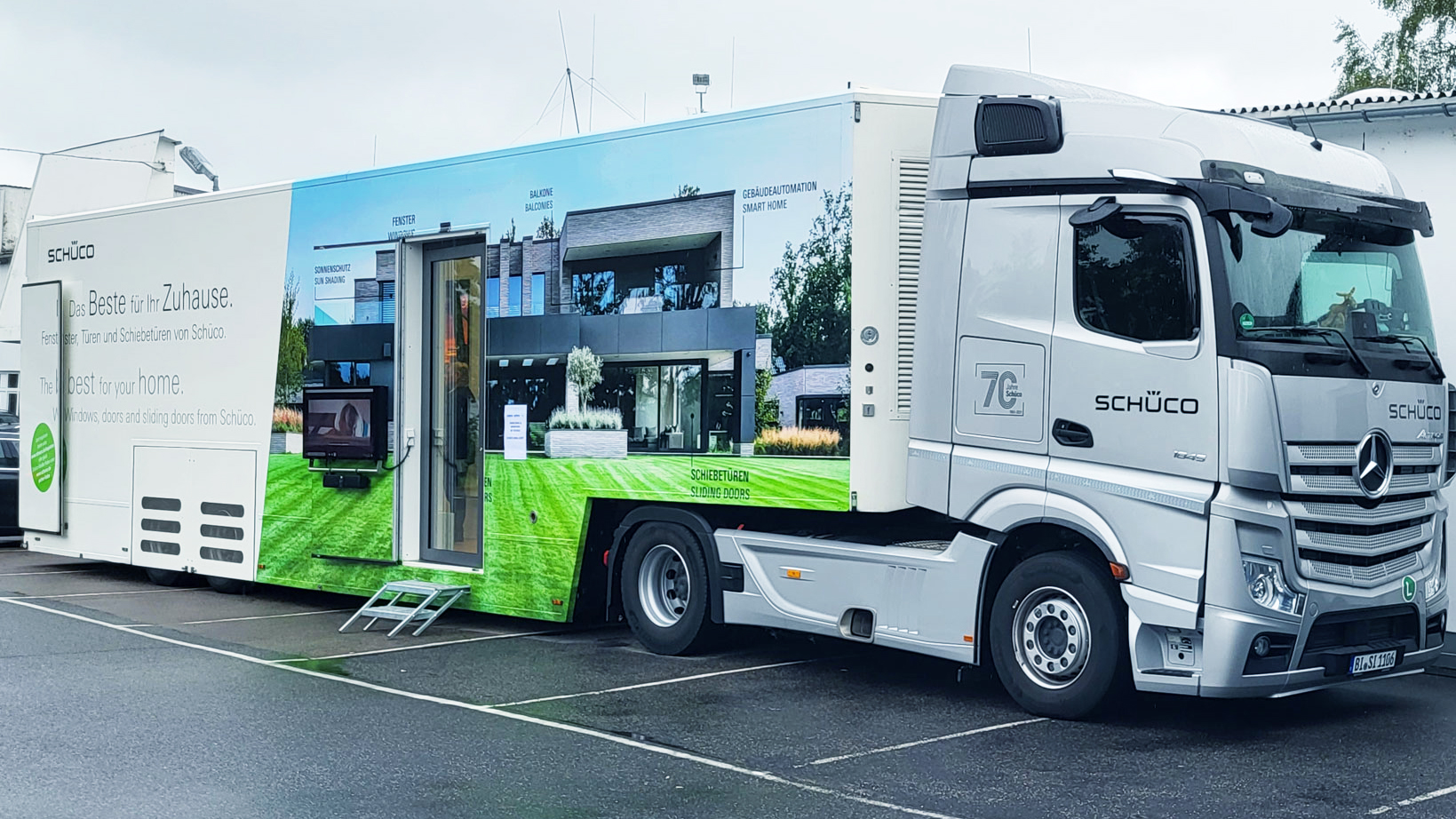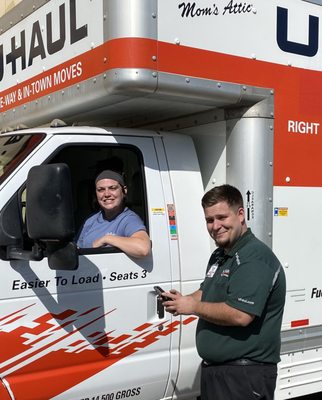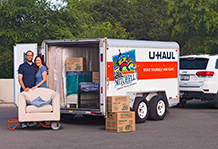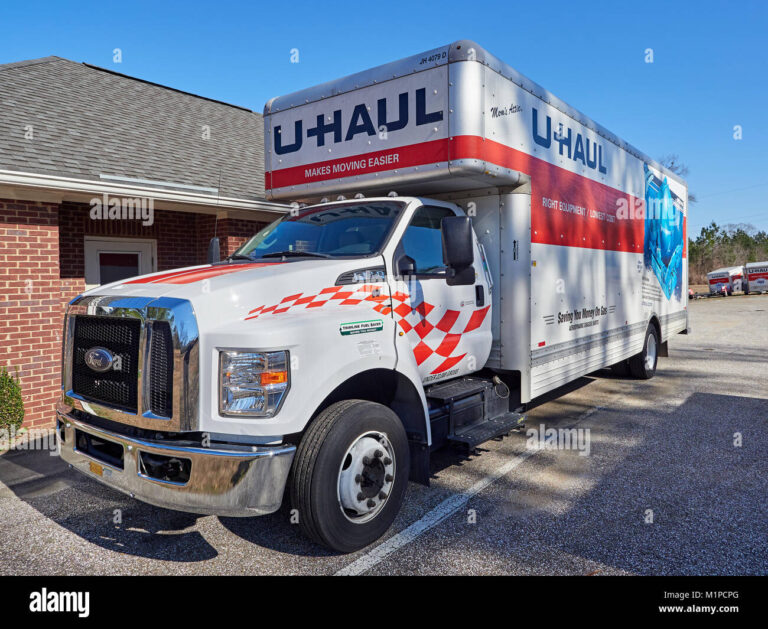What is a Demo Truck? Your Comprehensive Guide to Mobile Product Showcasing
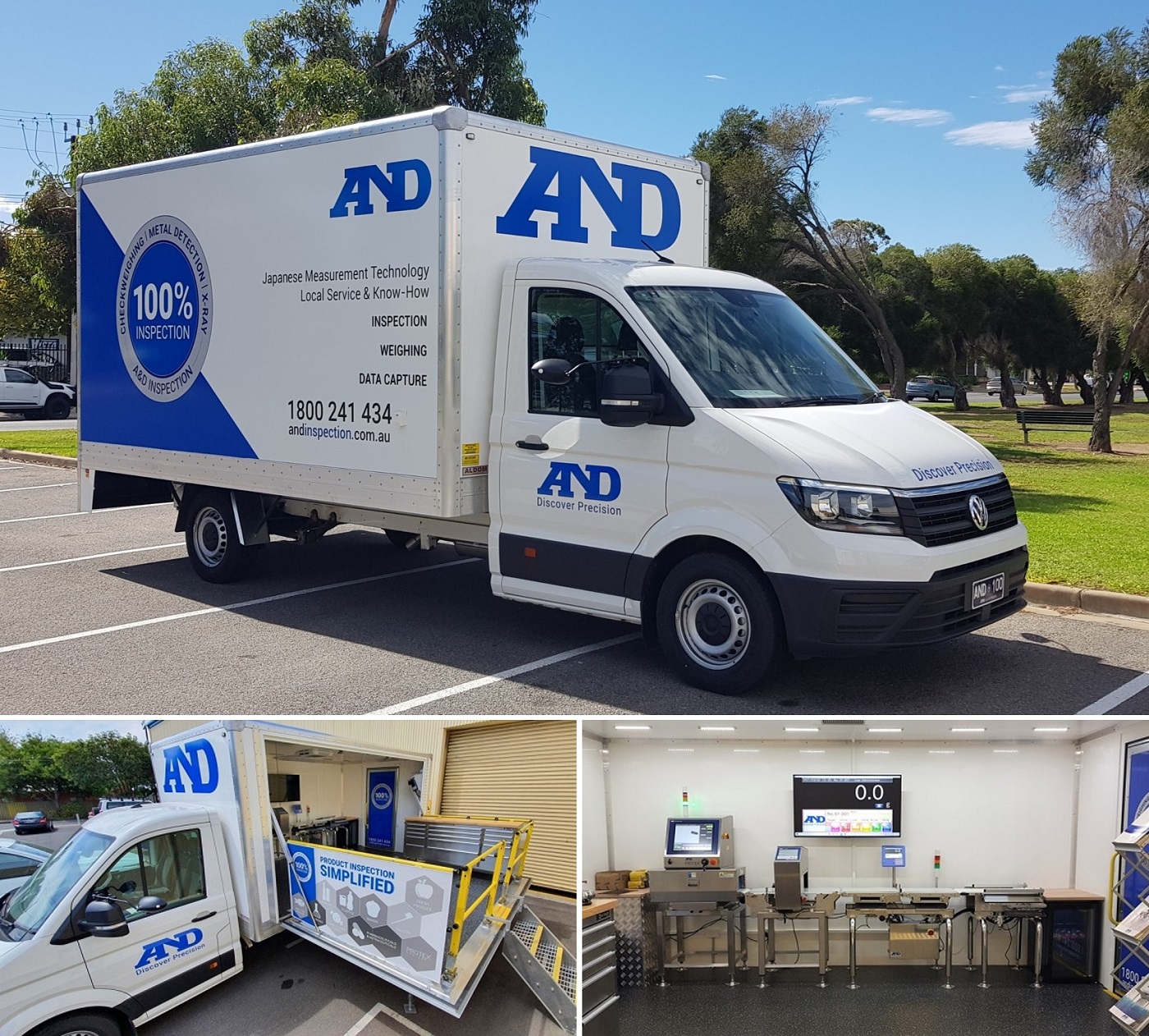
What is a Demo Truck? Your Comprehensive Guide to Mobile Product Showcasing
In an increasingly competitive marketplace, businesses are constantly seeking innovative ways to connect with potential customers and showcase their products or services. One of the most effective and dynamic strategies to emerge in recent years is the deployment of a demo truck. Far more than just a vehicle, a demo truck is a mobile showroom, a hands-on laboratory, and a powerful sales tool, all rolled into one. It brings your solutions directly to the customer, offering an unparalleled experiential marketing opportunity that can significantly boost engagement and drive sales.
If you’re wondering what is a demo truck and how it can revolutionize your business outreach, this comprehensive guide will delve into its core concepts, benefits, operational aspects, and key considerations.
The Core Concept: More Than Just a Vehicle
At its heart, a demo truck is a specialized vehicle, often a van, box truck, or custom-built trailer, meticulously outfitted to display, demonstrate, and allow interaction with specific products, technologies, or services. Unlike a standard delivery or service vehicle, its primary purpose isn’t transportation of goods for sale, but rather the presentation and education of potential buyers. It’s about creating a memorable, immersive experience that transcends the limitations of a traditional showroom or online catalog.
The power of a demo truck lies in its ability to:
- Provide Hands-On Experience: Customers can touch, feel, and operate products in a real-world or simulated environment.
- Offer Direct Technical Support: Knowledgeable staff can answer questions, troubleshoot, and provide tailored solutions on the spot.
- Showcase Complex Systems: It allows for the live demonstration of intricate machinery, software, or integrated solutions that are difficult to explain virtually.
- Generate Qualified Leads: Direct interaction often leads to more serious inquiries and faster sales cycles.
Essentially, a demo truck transforms your marketing and sales efforts from passive presentation to active, engaging interaction, making it an indispensable tool for many industries. For more details on what is a demo truck and its applications, you can explore resources like https://www.industryinsights.com/demo-truck-guide.
Why Demo Trucks are Indispensable: Benefits for Businesses and Customers
The adoption of demo trucks has surged because they offer a multitude of advantages for both the companies deploying them and the customers they aim to reach.
For Businesses:
- Increased Sales & Lead Generation: Direct, personalized demonstrations are highly effective in converting prospects into customers. The immediate feedback loop allows sales teams to address objections instantly.
- Enhanced Customer Experience: Bringing the product to the customer’s location offers unparalleled convenience, making the sales process smoother and more appealing.
- Market Penetration & Reach: Demo trucks can access remote areas or specific job sites where establishing a permanent showroom would be impractical or too costly. This allows businesses to tap into underserved markets.
- Real-time Product Feedback: Interacting with customers directly provides invaluable insights into product performance, features, and potential improvements, fostering agile product development.
- Brand Building & Awareness: A custom-branded demo truck acts as a moving billboard, generating buzz and reinforcing brand identity wherever it travels.
- Cost-Effectiveness: While the initial investment can be significant, a well-planned demo truck program can be more cost-effective than maintaining multiple physical showrooms, especially for specialized products.
For Customers:
- Unmatched Convenience: Products and solutions are brought directly to their workplace or preferred location, saving travel time and effort.
- Hands-on Testing: Customers can experience the product in their own operational context, allowing for more relevant evaluation.
- Personalized Solutions: Demonstrations can be tailored to address their specific challenges and requirements, leading to better-informed purchasing decisions.
- Direct Access to Experts: They get immediate answers to their questions from product specialists, fostering trust and clarity.
Anatomy of a Demo Truck: What’s Inside?
The internal configuration of a demo truck is where its true value lies. It’s a carefully engineered space designed for maximum impact and functionality.
Vehicle Base:
The choice of vehicle depends heavily on the products being showcased. Options range from:
- Commercial Vans: Ideal for smaller electronics, tools, or IT solutions.
- Box Trucks: Suitable for larger equipment, multiple product lines, or more elaborate displays.
- Custom Trailers: Perfect for very large machinery, extensive interactive exhibits, or when the truck itself needs to be detached.
- Heavy-Duty Trucks: For demonstrating actual heavy machinery or industrial equipment.
Customization & Outfitting:
This is where the magic happens. Key components often include:
- Display Racks, Shelving & Mounts: Securely hold and present products.
- Robust Power Systems: Generators, inverters, and battery banks are crucial for running equipment, lighting, and HVAC systems independently.
- Climate Control (HVAC): Ensures a comfortable environment for both staff and visitors, protecting sensitive electronics.
- Specialized Lighting: Strategic internal and external lighting enhances product visibility and creates an inviting atmosphere.
- Audiovisual Equipment: Large monitors, interactive touchscreens, and sound systems for presentations and multimedia content.
- Workstations & Meeting Areas: Spaces for one-on-one consultations, order processing, or detailed discussions.
- Branding & Graphics: High-impact exterior wraps and interior branding reinforce the company’s image.
- Security Features: Alarms, GPS tracking, and secure locking mechanisms to protect valuable inventory.
Examples of Products Suited for Demo Trucks:
- Heavy Equipment: Construction machinery, agricultural implements.
- IT & Networking Solutions: Servers, specialized cabling, software platforms.
- Medical Devices: Diagnostic equipment, patient monitoring systems.
- Specialized Tools & Manufacturing Equipment: CNC machines, welding equipment.
- Renewable Energy Systems: Solar panels, battery storage solutions.
Planning and Executing a Successful Demo Truck Program
A demo truck program requires meticulous planning and execution to maximize its effectiveness.
- Define Clear Objectives: What do you want to achieve? (e.g., 20% increase in leads, launch a new product, enter a new market).
- Identify Your Target Audience: Who are you trying to reach, and where are they located? This informs route planning and product selection.
- Select the Right Products: Choose items that benefit most from a hands-on demonstration and are suitable for mobile presentation.
- Design & Customization: Partner with experienced vehicle upfitters who understand your product and marketing goals. Focus on functionality, aesthetics, and safety.
- Logistics & Route Planning: Develop a detailed schedule, considering travel times, event locations, permits, and parking.
- Staffing & Training: Recruit and thoroughly train sales and technical personnel who are not only product experts but also excellent communicators and problem-solvers.
- Marketing & Promotion: Announce the demo truck’s visits in advance through digital marketing, local advertising, and direct outreach to prospects.
- Performance Tracking: Implement metrics to measure ROI, such as lead generation, sales conversions, customer feedback, and cost per demo.
Important Considerations and Potential Challenges
While highly effective, running a demo truck program comes with its own set of considerations:
- Initial Investment & Operating Costs: The purchase or lease of the vehicle, customization, equipment, fuel, maintenance, insurance, and staffing represent a significant financial commitment.
- Logistical Complexity: Managing routes, appointments, and unexpected delays can be challenging.
- Regulatory Compliance: Adhering to road permits, vehicle weight restrictions, safety standards, and local ordinances in different regions.
- Maintenance & Downtime: Regular maintenance is crucial for both the vehicle and the onboard equipment. Unexpected breakdowns can lead to missed opportunities.
- Staff Turnover & Training: Ensuring a consistent level of expertise and enthusiasm among the demo team.
- Weather Dependency: Outdoor demonstrations can be impacted by adverse weather conditions.
- Security: Protecting valuable equipment and inventory during transit and at demonstration sites.
Types and Categories of Demo Trucks
Demo trucks aren’t a one-size-fits-all solution. They can be categorized based on their primary function:
- Mobile Showrooms: Focused on aesthetics and comfort, offering a high-end, immersive brand experience with multiple product displays and meeting spaces.
- Technical Training Labs: Equipped with workstations and tools, designed for hands-on technical training and certification programs for clients or partners.
- Field Service & Support Vehicles: Combining product demonstration with immediate troubleshooting, installation, or maintenance services.
- Product-Specific Demos: Highly specialized vehicles designed to showcase a single, often large or complex, product in detail.
- Interactive Experience Vehicles: Incorporating gamification, virtual reality (VR), or augmented reality (AR) to create highly engaging and memorable experiences.
Practical Advice and Actionable Insights
To maximize the impact of your demo truck strategy:
- Start with a Clear Purpose: Define what success looks like before investing.
- Invest in Quality: A well-designed, reliable demo truck reflects positively on your brand. Don’t skimp on customization or internal equipment.
- Prioritize Staff Training: Your demo truck team is your brand ambassador. Equip them with product knowledge, sales skills, and technical expertise.
- Leverage Technology: Use CRM systems for lead tracking, scheduling software for route optimization, and digital tools for interactive presentations.
- Collect and Act on Feedback: Continuously gather insights from customers and your demo team to refine your approach.
- Focus on Solutions, Not Just Features: Frame your demonstrations around how your products solve specific customer problems.
Price Table: Understanding the Costs of a Demo Truck Program
The cost of a demo truck varies widely depending on the vehicle type, level of customization, and complexity of the onboard equipment. Here’s a breakdown of typical cost ranges:
| Category | Description | Estimated Price Range (USD) |
|---|---|---|
| Vehicle Base | Purchase price of a new or used commercial van, box truck, or trailer. | $30,000 – $150,000+ (New, depending on size/type) |
| Customization & Upfitting | Interior build-out, display racks, power systems, HVAC, lighting, AV equipment, security. | $50,000 – $300,000+ (Highly variable by complexity) |
| Exterior Branding | Full vehicle wrap, custom graphics, signage. | $5,000 – $20,000 |
| Specialized Equipment | Cost of actual products/machinery being demonstrated (if purchased for demo). | Variable (can be millions for heavy machinery) |
| Fuel & Maintenance | Annual cost for fuel, routine servicing, repairs. | $10,000 – $30,000+ per year (Depends on mileage/size) |
| Insurance | Commercial vehicle insurance, equipment insurance. | $3,000 – $10,000+ per year |
| Staffing Costs | Salaries, benefits, travel expenses for dedicated demo truck personnel. | $60,000 – $150,000+ per person per year |
| Marketing & Promotion | Advertising, event planning, local outreach for demo visits. | $5,000 – $50,000+ per campaign/year |
| Permits & Fees | Road permits, special event fees, parking. | Variable (hundreds to thousands per year) |
| Total Initial Investment | Vehicle + Customization + Branding + Initial Equipment | $85,000 – $500,000+ (Excluding demo products) |
| Total Annual Operating Cost | Fuel, Maintenance, Insurance, Staffing, Marketing, Permits | $80,000 – $250,000+ |
Note: These are estimates. Actual costs can be lower or significantly higher based on specific requirements, geographic location, and product complexity.
Frequently Asked Questions (FAQ)
Q1: How much does a demo truck cost?
A demo truck’s cost varies widely. The initial investment (vehicle, customization, branding) can range from $85,000 to over $500,000, excluding the cost of the actual products being demonstrated. Annual operating costs (fuel, maintenance, staffing, insurance) can add another $80,000 to $250,000+. Refer to the price table above for a detailed breakdown.
Q2: What kind of businesses benefit most from demo trucks?
Businesses that sell complex, high-value, or hands-on products benefit most. This includes industries like construction, manufacturing, IT hardware, medical devices, automotive accessories, specialized tools, and even advanced food and beverage equipment. Any business where a physical interaction greatly enhances understanding and sales can benefit.
Q3: Is it better to buy or lease a demo truck?
The decision to buy or lease depends on your budget, anticipated usage, and long-term strategy.
- Buying offers full ownership, customization flexibility, and potential asset appreciation, but requires a higher upfront capital investment.
- Leasing typically involves lower initial costs, predictable monthly payments, and allows for easier upgrades to newer vehicles or configurations, but you don’t own the asset.
Q4: How long does it take to build a custom demo truck?
The timeline for building a custom demo truck can vary from 3 to 12 months or more. This includes vehicle acquisition, design consultation, engineering, fabrication, installation of equipment, and final branding. The complexity of the customization and the availability of specialized components are major factors.
Q5: What are the key elements of a successful demo truck program?
Success hinges on clear objectives, a well-designed and functional vehicle, a highly trained and engaging staff, strategic route planning, effective pre- and post-event marketing, and robust performance tracking. Ultimately, it’s about delivering a valuable and memorable experience that addresses customer needs.
Conclusion
The question of what is a demo truck reveals a powerful strategy that goes beyond traditional sales methods. It represents a dynamic approach to experiential marketing, bridging the gap between innovative products and their potential users. By bringing solutions directly to the customer’s doorstep, demo trucks foster deeper engagement, accelerate sales cycles, and build lasting brand loyalty. In an era where personalized experiences are paramount, the demo truck stands as a testament to creative business development, offering a mobile, interactive platform that continues to drive success for forward-thinking companies worldwide.
